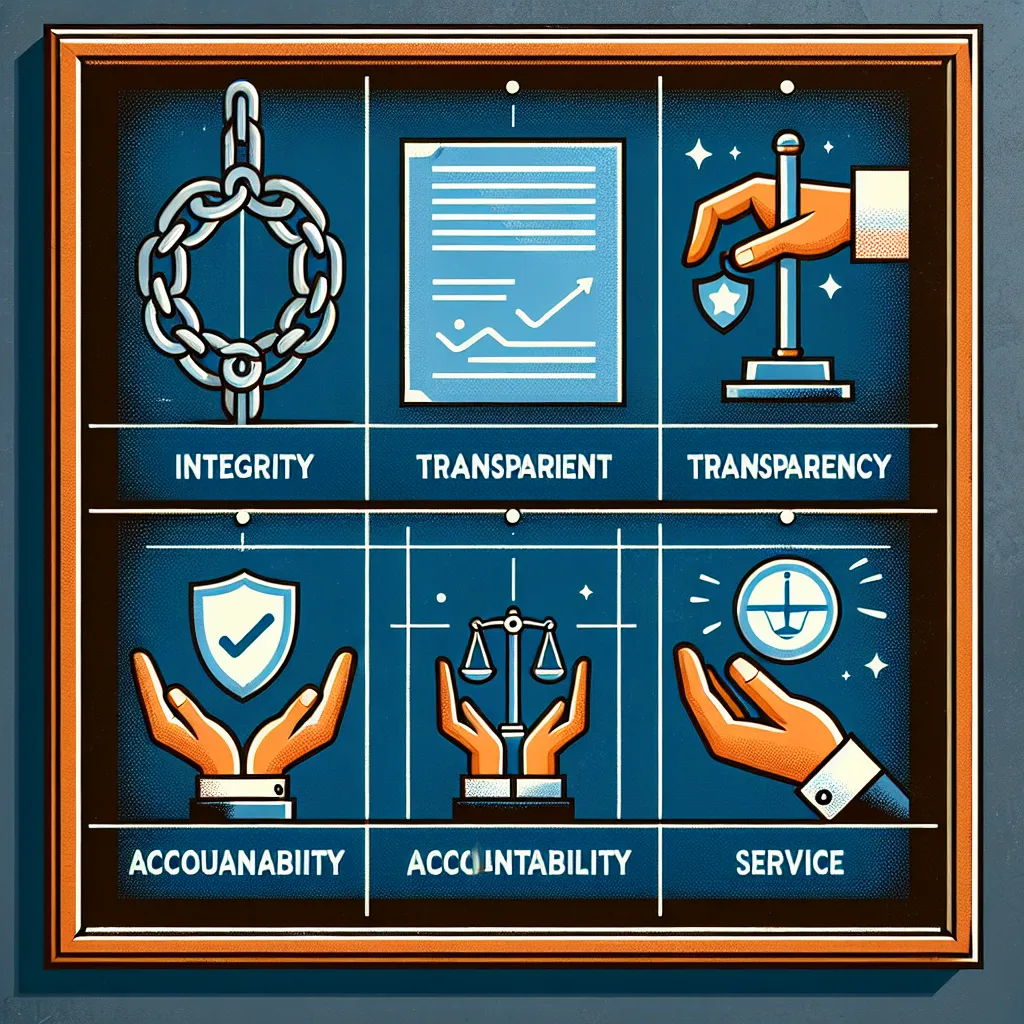Are you gearing up for a public sector interview? Whether you’re aiming for a government position or a role in a public organization, proper preparation is key to success. This guide will walk you through the essential steps to ace your public sector interview, providing valuable insights and practical tips to help you stand out from the competition.
Understanding Public Sector Interviews
Public sector interviews are unique in their focus on serving the community and adhering to government policies. These interviews often assess your ability to work within established frameworks while contributing to the greater good of society.
What Interviewers Look for in Public Sector Candidates
When interviewing for a public sector position, recruiters typically evaluate candidates based on several key factors:
- Knowledge of public policies and government operations
- Commitment to public service
- Ability to work within bureaucratic structures
- Problem-solving skills in a public context
- Communication and interpersonal skills
- Ethical standards and integrity
 Public Sector Interview
Public Sector Interview
Preparing for Your Public Sector Interview
Research the Organization and Role
Before your interview, thoroughly research the government agency or public organization you’re applying to. Understand their mission, recent initiatives, and how your role would contribute to their goals.
- Review the organization’s website and annual reports
- Follow their social media accounts for recent updates
- Read relevant government policies and legislation
Common Public Sector Interview Questions and Sample Answers
Here are some typical questions you might encounter in a public sector interview, along with suggested responses:
-
Q: “Why do you want to work in the public sector?”
A: “I’m passionate about making a positive impact on society. Working in the public sector allows me to contribute directly to policies and programs that benefit our community. I believe my skills in [relevant skills] can help improve public services and outcomes for citizens.” -
Q: “How do you handle working within strict regulations and policies?”
A: “I understand the importance of regulations in ensuring fairness and accountability in public service. I approach this by thoroughly familiarizing myself with relevant policies and seeking clarification when needed. In my previous role, I successfully implemented new procedures that adhered to updated regulations while improving efficiency in our department.” -
Q: “Can you describe a time when you had to deal with a difficult member of the public?”
A: “In my previous position at [organization], I encountered a citizen who was frustrated with a delay in processing their application. I listened attentively to their concerns, explained the process transparently, and worked to expedite their case where possible. By maintaining a calm and empathetic approach, I was able to de-escalate the situation and resolve their issue satisfactorily.”
Handling Questions Outside Your Expertise
In public sector interviews, you may encounter questions about policies or procedures you’re not familiar with. Here’s how to handle such situations:
- Be honest about your knowledge gaps
- Express eagerness to learn
- Relate the question to your existing knowledge or experience
- Ask for clarification if needed
For example: “While I’m not directly familiar with that specific policy, I’m very interested in learning more about it. From my understanding of similar initiatives in [related area], I believe the key considerations would be [mention relevant points]. Could you provide more context about how this policy relates to the role?”
Common Mistakes to Avoid in Public Sector Interviews
- Lack of knowledge about the organization’s mission and recent initiatives
- Failing to demonstrate a genuine interest in public service
- Overlooking the importance of ethical considerations in decision-making
- Not providing concrete examples of problem-solving or teamwork
- Appearing inflexible or resistant to change
To avoid these pitfalls, thoroughly prepare examples from your experience that demonstrate your alignment with public sector values and your ability to navigate complex bureaucratic environments.
 Public Sector Values
Public Sector Values
Follow-up Questions and Suggested Responses
-
Q: “How do you stay informed about changes in public policy that might affect your work?”
A: “I regularly follow government publications, attend relevant webinars, and participate in professional networks focused on public policy. I also set up alerts for key policy areas related to my work to ensure I’m always up-to-date.” -
Q: “Can you describe a time when you had to balance competing priorities in a public service context?”
A: “In my previous role, we faced budget constraints while trying to implement a new community program. I worked with stakeholders to prioritize essential services, found cost-effective solutions, and leveraged community partnerships to maximize our impact within the available resources.” -
Q: “How would you approach implementing a controversial policy that faces public resistance?”
A: “I would start by thoroughly understanding the policy’s objectives and potential impacts. Then, I’d focus on transparent communication with the public, addressing concerns through community meetings and clear, factual information dissemination. I’d also seek to identify areas where public input could be incorporated to improve implementation.” -
Q: “What experience do you have with public-private partnerships?”
A: “While I haven’t directly managed public-private partnerships, I’ve studied successful models in [relevant sector]. I understand the importance of clear communication, defined roles, and mutual benefit in these partnerships. I’m eager to apply these principles and learn more in this role.” -
Q: “How do you ensure your work aligns with principles of diversity, equity, and inclusion?”
A: “I’m committed to DEI principles in all aspects of my work. This includes considering diverse perspectives in decision-making, ensuring equitable access to services, and promoting inclusive practices. In my previous role, I initiated a review of our outreach materials to ensure they were accessible and representative of our diverse community.”
Conclusion
Preparing for a public sector interview requires a blend of policy knowledge, commitment to public service, and the ability to navigate complex organizational structures. By thoroughly researching the organization, practicing your responses to common questions, and demonstrating your alignment with public sector values, you’ll be well-positioned to succeed in your interview.
Remember to showcase your passion for public service, your problem-solving skills, and your ability to work effectively within established frameworks. With proper preparation and a genuine commitment to serving the public, you’ll be ready to make a strong impression and take the next step in your public sector career.
For more interview preparation tips, check out our guides on how to prepare for a transportation interview or how to prepare for a consulting interview. Each sector has its unique aspects, and understanding these can give you a competitive edge in your job search.




